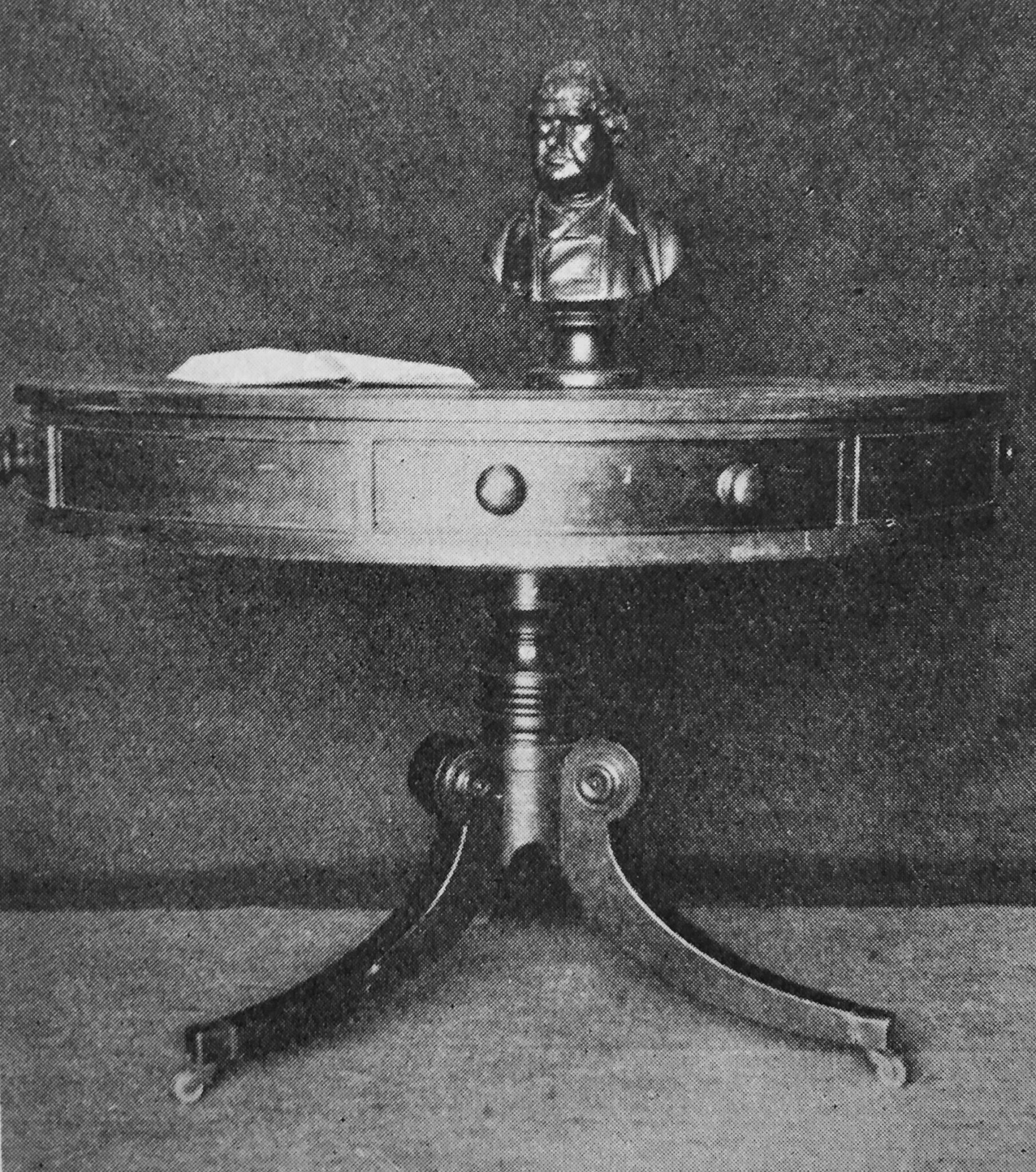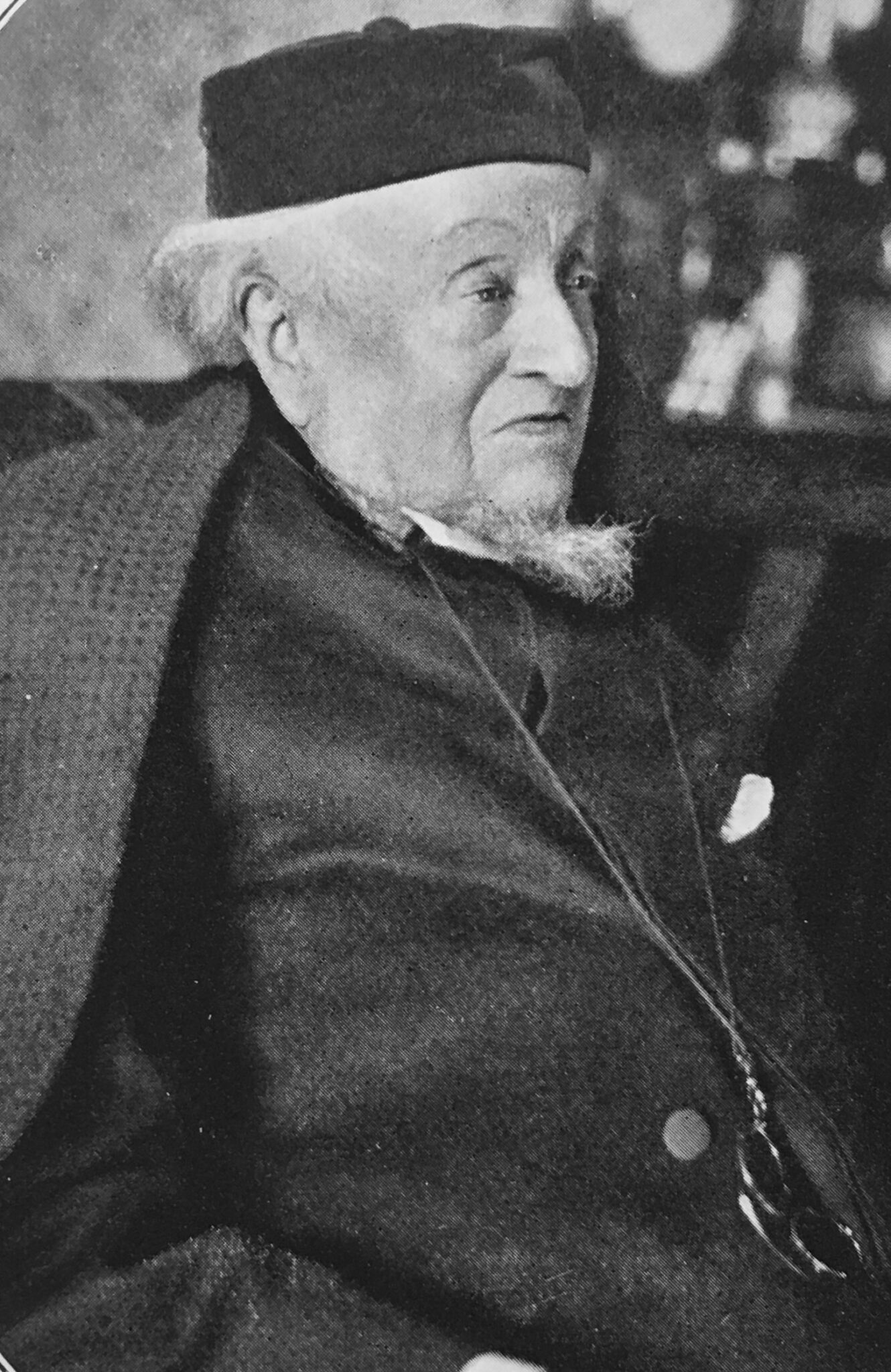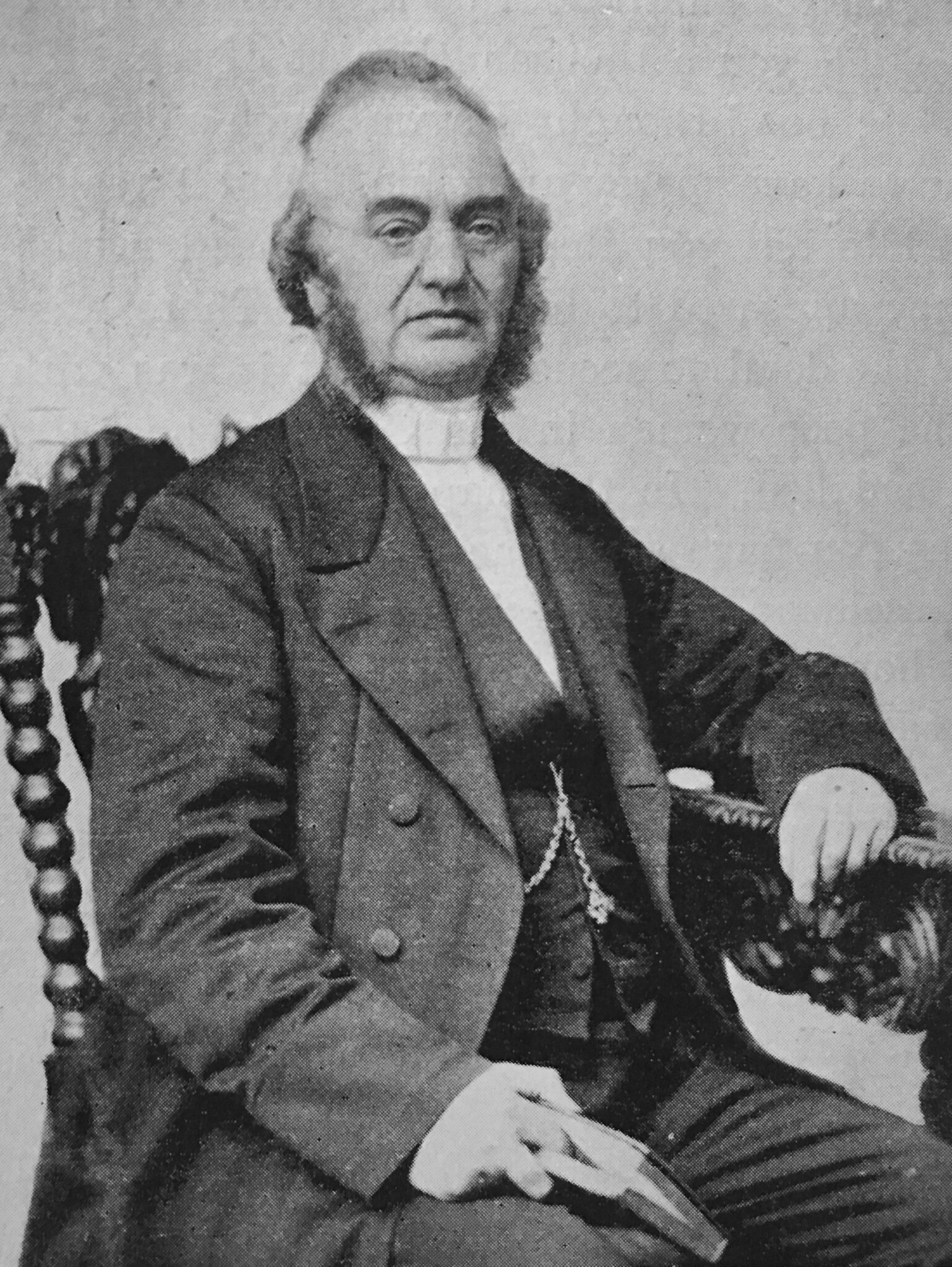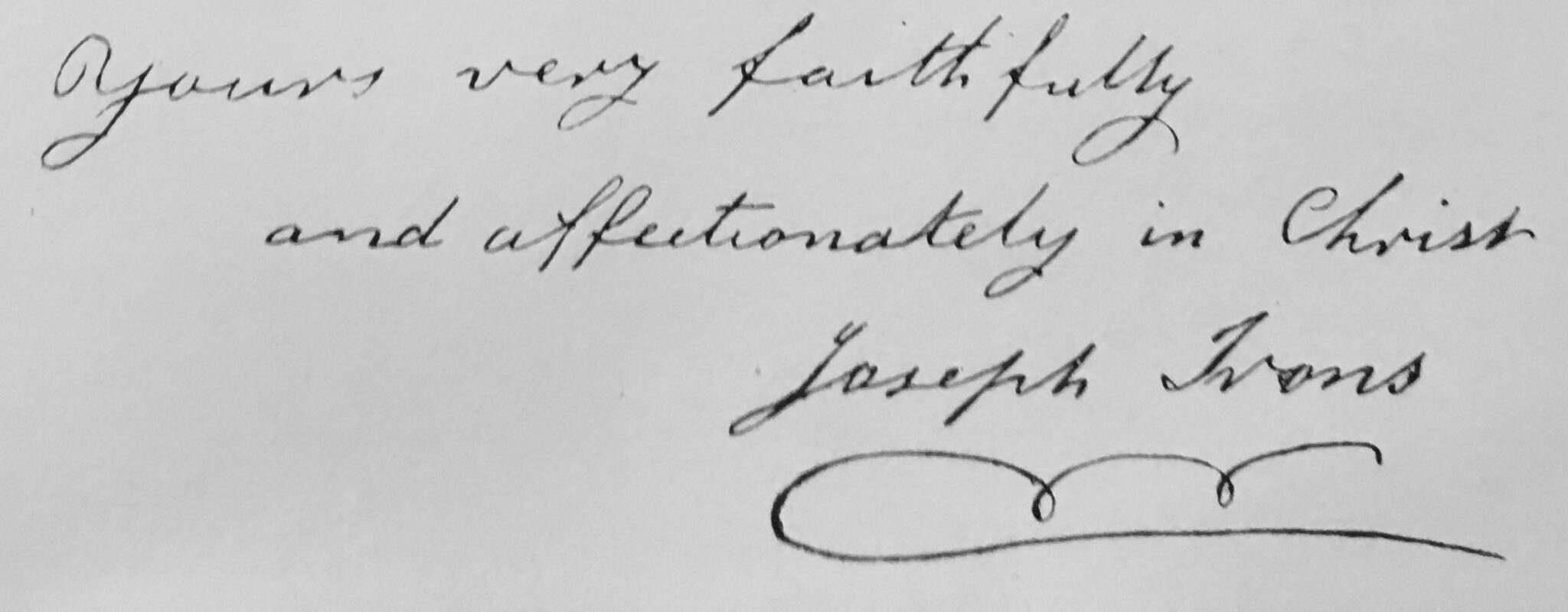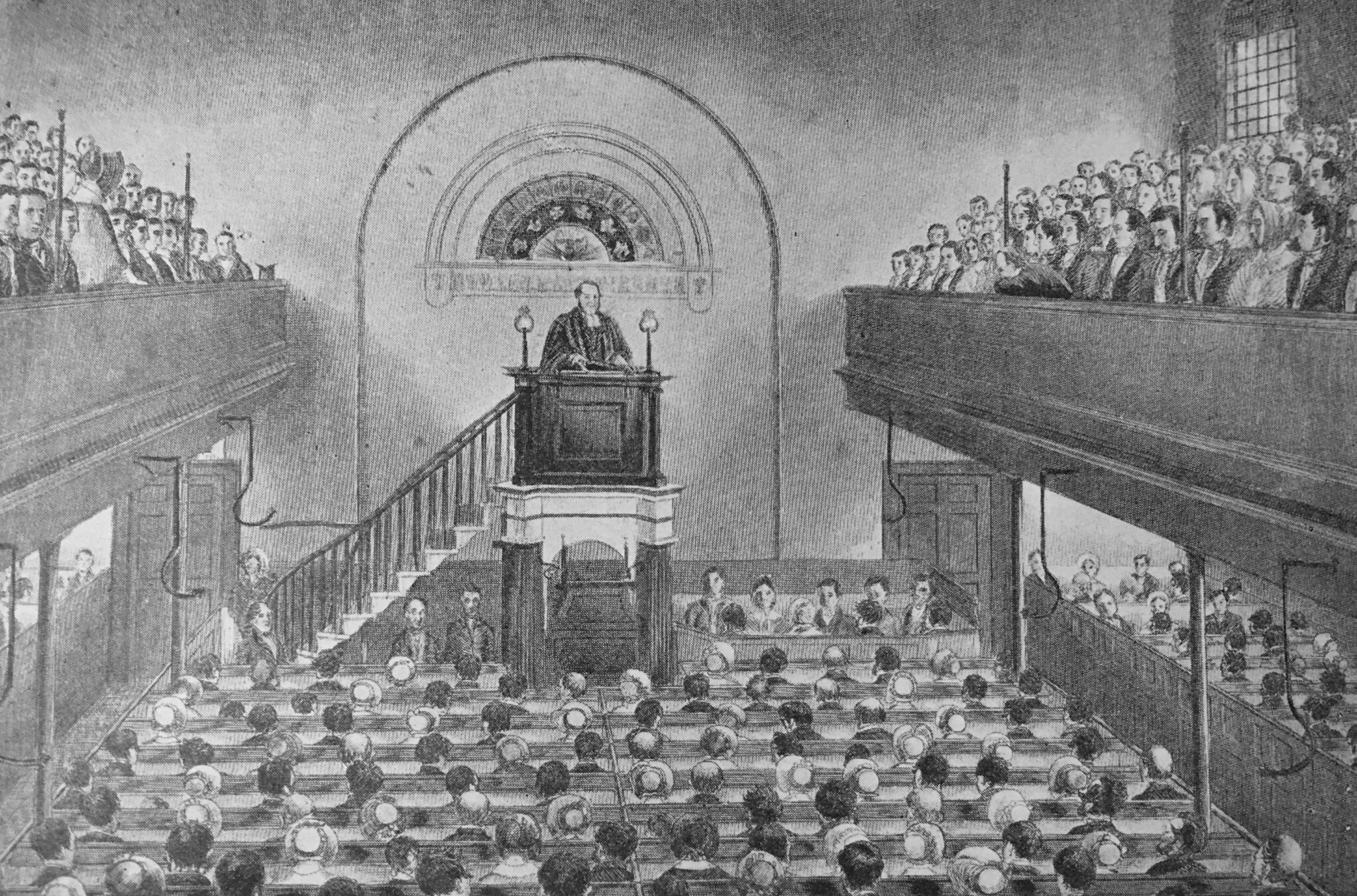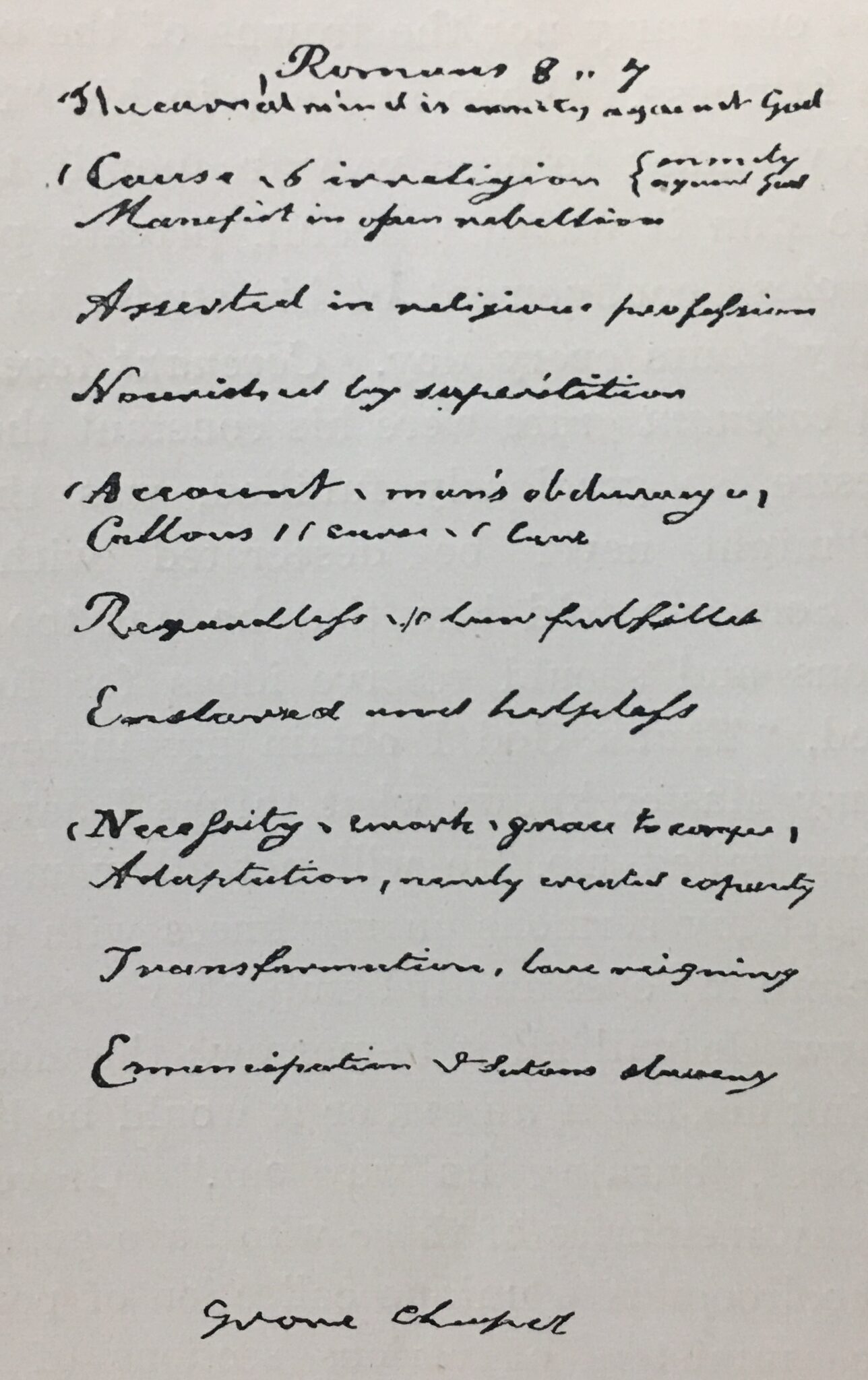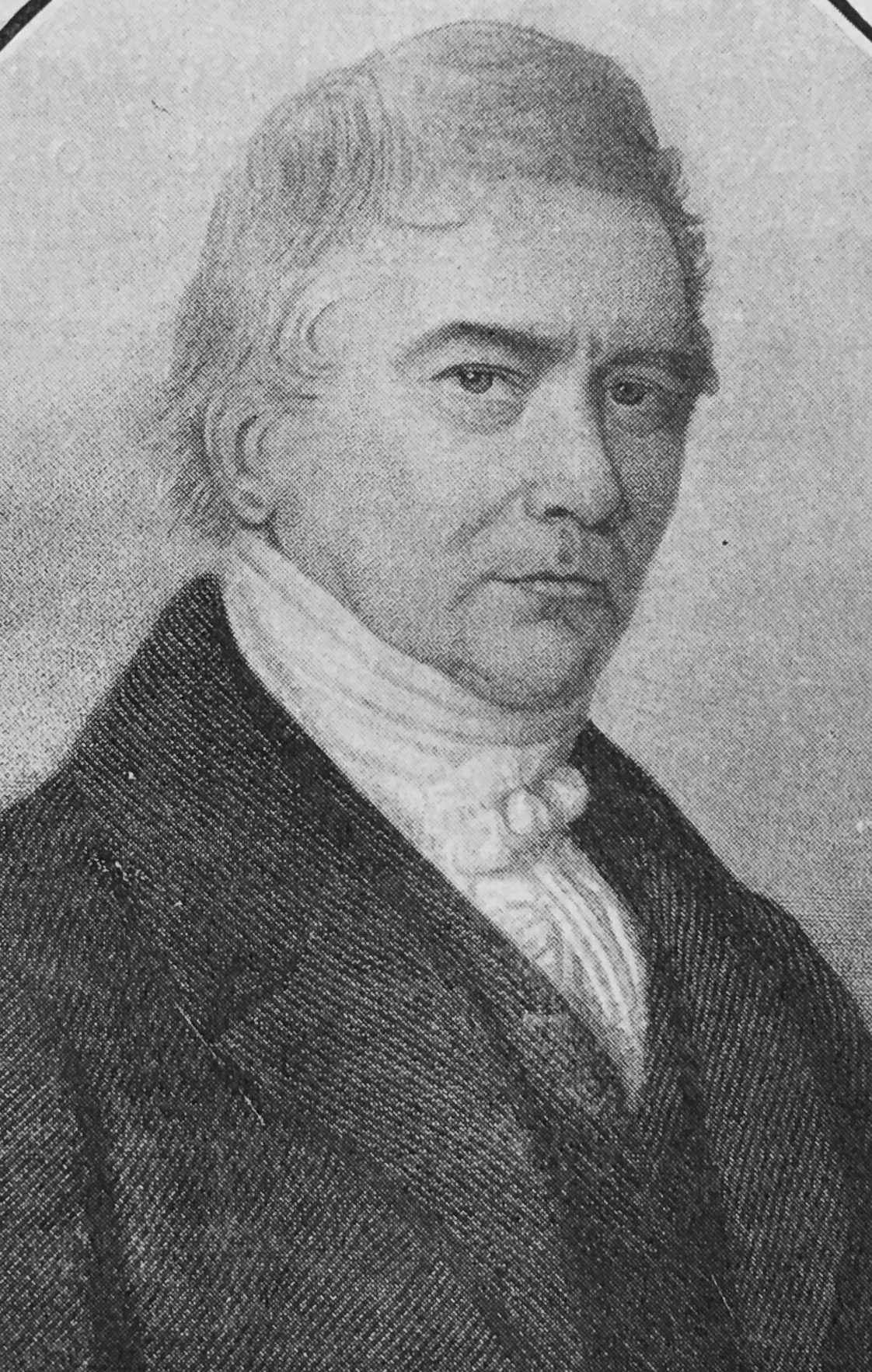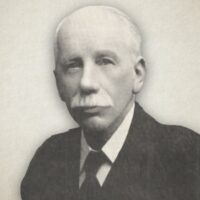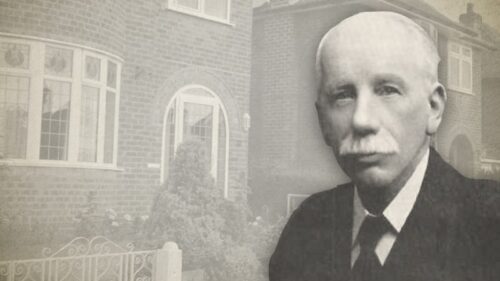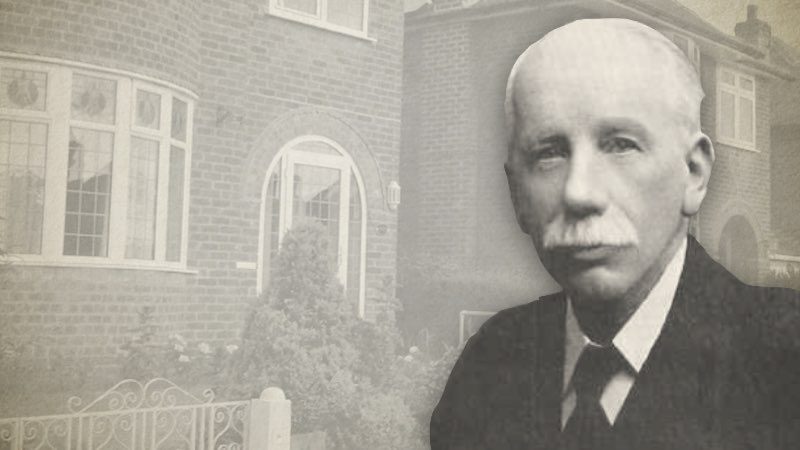
Chapter 6: The Independents
“And ye shall know the truth, and the truth shall make you free.”—John 8:32
William Huntington (1743-1813) must occupy the first place in this chapter in order of time and reach of influence. He was born in the Weald of Kent, between Goudhurst and Cranbrook, his mother being the wife of a day labourer working for seven or eight shillings weekly in the winter, and in the summer for nine shillings per week. He learned to spell and read and write a little, and this constituted his educational equipment for the battle of life. He walked in evil paths, and at one period of his life used to unload coals from the barges at Thames Ditton; hence the title “Coalheaver.” His autobiography is contained in several of his works—notably in “The Kingdom of Heaven Taken by Prayer,” the “Bank of Faith,” and the “Naked Bow of God.” He was long under deep convictions, and found no spiritual guide or helper in the churches he attended. “The Whole Duty of Man” was diligently studied by him, but it only aggravated his condition, and he was reduced to a state bordering on despair. His deliverance came when, as a gardener at Sunbury, he was pruning wall-trees a little before Christmas. While standing on the ladder a voice from heaven said. “Go, pray to Jesus Christ. Do you not see how pitifully He speaks to sinners?” In his little tool-house he began to pray, and how the Lord blest him he relates in language which has not been surpassed in spiritual literature. “I was amazed, for the whole creation appeared in such Divine embroidery as I had never before seen. ‘His glory covered the heavens, and the earth was full of His praise’ (Hab. 3:3). Indeed, I could not compare myself to anything, unless it was to one who had been shut up in a dark cell from the moment of his birth till he arrived at the age of twenty or thirty years, and then was turned into the world on a glorious sunshiny day and placed on an eminence where he could survey the greater part of the world at one view.”
It is next to impossible to read Huntington’s writings, especially his Letters, without discovering his enlarged acquaintance with the evil and diversified workings of the human heart. We question if any man, since the apostle’s days, had a larger acquaintance with the life of the soul, or was more keenly susceptible of the special movements of the Spirit of God in distinctiveness from his own carnal contentions.
His was a special work, and the day in which he lived was one in which a man so zealous for his Lord, and so indifferent to the opinions of his fellow-men, was peculiarly needed. He “lifted up his voice like a trumpet; he cried aloud, he spared not.” Would that we had many in our day animated by the same fearless spirit.
The providence of God was remarkably conspicuous in the life and leadings of this great man. To the spiritual mind his “Bank of Faith” will afford a rich feast. Whilst the worldling scoffs, and the nominal professor sneers, the true child of God will wonder, admire, and adore. From the cradle to the grave we see in this sinner saved—”S.S.”—striking evidences of the watchful eye, ceaseless regard, and ever-tender watchfulness and care of a covenant God and Father in Christ Jesus. Through a long and eventful life, and under a wonderful variety of circumstances, this child of Providence tested the wisdom, power, and faithfulness of Him who said, “Whoso is wise, and will observe these things, even they shall understand the lovingkindness of the Lord.”
Notwithstanding all that has been said to the contrary, no man could have had a deeper sense of honour and integrity. He was generous to a degree. His hand responded to his heart in the liveliest and most practical sympathy. His wish to be placed in an independent position, so far as the proprietorship of his chapel was concerned, was from a laudable desire that he should be raised above the caprice of poor fallible men, and that, neither fettered by the frowns nor biassed by the favours of his fellow-creatures, he might seek with a single eye to his Master’s glory to ” declare the whole counsel of God.”
As a preacher he reflected in a peculiar way the Divine all-sufficiency of Him who said to Moses, “Who hath made man’s mouth, or who maketh the dumb, or deaf, or the seeing or the blind; have not I, the Lord?” He tells us he entered upon his eventful ministry ere he could scarcely read a chapter in the Bible, and yet so marvellously was he aided from on high, that in the course of a few years he arrested the attention of an immense auditory for two hours at a time, and this not once, twice, or thrice merely, but week after week, month after month, and year after year. Such was his knowledge of the Word of God that he was called the “walking Concordance”; and such was his insight into the darker and more obscure parts of the sacred volume that many would seek to hear if only to listen to his interpretations.
As a pastor he felt the tenderest interest in his flock. Raised for a special purpose, his capacious mind would take a large and comprehensive view of the condition of Christendom, and, as he saw error and evil looming in the distance, he would forewarn in order to forearm. His counsel in trial, and critical exploring of those peculiar depths of temptation into which at least some of the Lord’s people are called to pass, rendered him a real “companion in tribulation.”
The power of Jehovah, as well as His Divine sovereignty, shone forth brilliantly in this His servant. It is worthy of observation—especially in these days of rebuke and blasphemy, when men seek to substitute human learning, however good in its place, for the Spirit’s teaching—that God has ever given practical proof that His Gospel is to be preached “not with wisdom of words.” “I will destroy,” says God, “the wisdom of the wise, and will bring to nothing the understanding of the prudent.” As the Lord Christ, in the days of His flesh, chose poor illiterate fishermen and instructed them in the mysteries of His kingdom, send- ing them forth as witnesses of His resurrection, so in every age many of those who stand prominently before the Church and the world are lively examples that He “hath chosen the weak things of the world to confound the things which are mighty; and base things of the world, and things which are despised, hath God chosen; yea, and things which are not, to bring to nought things that are, that no flesh should glory in His presence.”’
Thus, in secret communion and ardent wrestling with his God—in the investigation of truth—the deep spiritual study of the Scriptures—the tracing of the footsteps of the flock—pulpit preparation or epistolary correspondence—would this great and good man spend hour after hour, and day after day, in his study. So anxious was he to go from the secrecy of his own chamber to speak in the name of the Lord, that in Providence Chapel, Grays Inn Road, there was a suite of rooms termed “The Cabin,” to which he often resorted on a Saturday afternoon, or hours before his week-night preaching, in order that he might walk from immediate intercourse with his God at once into the pulpit.
His “bitterness,” which has been exaggerated by his enemies, may be traced to three causes—his natural temperament, the enmity of the profane world, and the envy of the professing world; but, his heart-travail and sympathy with the spiritually-awakened and distressed was great. There was a tenderness and sympathy with the tried, the sin-harassed and Satan-buffeted, that were very beautiful fruits of grace. Catch his ear and you would touch his heart. His work was peculiarly the rooting up all false confidence; the breaking down all false props; the turning up the fallow ground of the heart; the scattering the precious grain of the Word, and the tending and nurturing of the early plant. His office, moreover, was that of a sentry to watch and ward off the enemy. He was seldom off duty upon the ramparts, and, in the intervals, had to attend the hospitals. Heavier day-and-night duty never fell to the lot of mortal since the apostles’ days; and perhaps upon no one man did diverse duties more singularly devolve.
Huntington’s Study Table
He published one hundred books, large and small, and once mentions being “weary at night, after having been hard at writing for fifteen hours during the day.” We give an illustration of his famous study writing-table, which appears in many of his portraits; out of one of the drawers he raked the loose silver to which Warburton refers in his account of his interview with him, as described in the next chapter. The table is now in the possession of the writer of this book. Huntington never spared himself, and in earlier years frequently preached in the open air. His congregations were vast. He was deeply attached to his King, George III, and steadfastly stood for law, order and the constitution of his country in the midst of the stormy and unsettled times in which he lived. Dr. Cole, to whom reference has been made in the previous chapter, said: ”It may be asked why in my ministration, such as it is, I make frequent allusion to the ministry of that great and blessed servant of the Most High, the late Mr. Huntington. The reasons are these—1st. Because I believe he bore and left in Britain the greatest and most glorious testimony to the power of God’s salvation that ever was borne or left therein. 2nd. Because I believe he planted the noblest vine of a Congregational Church that ever was planted therein; and 3rd. Because I believe the Churches that maintain the vital truths he set forth form a very essential feature in the Church-state of Christ in the land in these times, and perhaps will do so to the time of the coming day of God’s retribution.”
In his ministry he contended for manifestations of Christ to the soul as a vital point, and that a sinner must know and feel that he is lost before the Gospel can be apprehended in its sweetness and power. It was a sifting ministry, giving great offence to those dead in a profession, but most encouraging to seekers and strengthening to the children of God. He usually preached five sermons every week, besides occasional engagements; his chapel was, as a rule, full a quarter of an hour before the service commenced, the aisles mostly being crowded. The people employed the interval of waiting in reading the Scriptures, Hart’s hymns, or in meditation and prayer, or quiet converse upon the things of God. His weaknesses and infirmities were patent to all and were maliciously magnified by the enemies to the truths he preached. God honoured his testimony; vast numbers were blest, and spiritual prosperity was enjoyed such as this day is a stranger to. His dust sleeps till the resurrection morn in the little graveyard at the back of Jireh Chapel, Lewes, where in the same vault also rests all that is mortal of his dearest friend, Jenkin Jenkins, “the Welsh ambassador” and first minister there; John Vinall, who succeeded him; and several others. Mr. Vinall was followed in the pastorate by Mr. John Vinall, Jun., and he by Matthew Welland (1818-1908), who was for 64 years a preacher of the Gospel of Christ and 48 years pastor of the Church. Several of his sermons have been printed and largely circulated; and a collection of extracts from them, entitled “Crumbs for God’s Sparrows,” was published in book-form in 1901. This book and tracts by Mr. Welland have found their way into many parts of the world.
The Rev. Matthew Welland, Of Lewes. Aged 90
Algar Lock, who became Huntington’s assistant minister and succeeded him at Providence Chapel, passed away in September, 1835, at Lakenheath, four days after the death of Thomas Bensley, the most eminent printer of his day and the devoted friend of the Coalheaver, and publisher of his works. He died at Albion Terrace, Wandsworth Road, and was buried in Bunhill Fields. Mr. Lock’s introduction to Huntington was remarkable. He was suffering from sore temptation that he had committed the unpardonable sin. One day when walking in Cheapside he was so distressed in mind that he almost fell to the ground, and to save himself caught hold of a post at the corner of Bow Church. An old woman who for many years sat there selling tapes saw him and invited him to sit down on her stool, which he did. Suspecting from his manner that it was more mental than bodily suffering, she asked him and he said it was. “You must go and hear the coalheaver, sir; he is the man that will suit you; he preaches near here every Tuesday night.” God inclined his heart to attend the next service. Before commencing his sermon Mr. Huntington remarked that he did not like to have a text given to him, but that he had received three letters, each requesting him to preach from a particular passage (the one he was about to take), and as the writers lived at a distance from each other he felt it must be of God and he hoped they were then present to hear him. He then gave out these words—”All manner of sin and blasphemy shall be forgiven unto men, but the blasphemy against the Holy Ghost shall not be forgiven unto men” (Matt. 12:31). No sooner were the words uttered than Mr. Lock, fearing he should hear his condemnation, started up, saying “Let me out!” but the chapel was so crowded he could not leave and had to resume his seat. The divisions were—1. Show from Scripture what this sin is. 2. Describe the characters that have committed it. 3. The fears and temptations some of God’s people labour under concerning it. Under that sermon Mr. Lock’s fears, bondage and temptations fled away and the kingdom of God which stands in righteousness, peace and joy was set up in his soul.
William James Brook, B.A. (1775-1811), formerly Vicar of Brighton and afterwards the builder and minister of Providence Chapel in that town, should be named. He was an able and faithful preacher and at one time closely associated with Huntington. His last words were remarkable—”They rest from their labours! They rest! They rest! They rest!”
The career of George Abrahams (1800-1867), by birth a Polish Jew, was a remarkable instance of the grace of God.
George Abrahams
Anthony Norris Groves, the friend of Dr. Kitto but perhaps best known through his missionary journeys to Bagdad and India, was living at Exeter and there met two Jews—Belsom and Abrahams—who had come to inquire about the conversion of Mr. Alexander, at first the Jewish Rabbi at Plymouth, afterwards Bishop of Jerusalem. Mr. Groves was instrumental in establishing these seekers in the knowledge of Christ; he thought it well that they should each learn a trade. Belsom became a saddler and Abrahams a tailor. The latter found it difficult to learn the construction of the English language and for some time, while earning a guinea a week, supported his friend, Belsom, who soon became a missionary among the Jews. Mr. Groves delighted, in after life, to dwell on this unselfish labour, as illustrating the nature of the principles which he desired to see fully carried out in the Church of God, by each member taking his own place in the body; and having rejoiced in Mr. Abrahams’ care for his brother, it was not a less joy to him to find that the Lord had, by His Spirit, endowed him with gifts for bringing out the sheep of Christ, and feeding them in richer pastures than mere knowledge of language could have enabled him to do. He who had delighted to take the lowest place, in helping another to minister, became himself blest for many years as a preacher of the Gospel in London. Mr. Abrahams, in a letter to Mrs. Groves, said: “It is difficult to write of the past, after a lapse of twenty-eight years; but your dear departed husband was a brother and friend to me, and always manifested much of that Christian love which was predominant in his character. I was baptized in Exeter on Christmas Day, 1825, after which dear Groves gave us a dinner at his house. It was Mr. Alexander who was baptized by Mr. Hatchard, of Plymouth, but Belsom and I were baptized by Mr. Vickers, at his little church.”
In 1848 Mr. Groves writes: “Last evening I went to hear Abrahams preach; it was an excellent sermon. During the delivery of it, he was led to express himself concerning his state in Exeter, little thinking I was there to hear him. After he had done I went and spoke to him and he came this morning to breakfast. Truly he is a man taught of God and they say that his chapel is thronged on Sundays.” For thirty-five years he was the pastor of the Church meeting in Regent Street Chapel, City Road. His ministry was searching and powerful; he especially shone in opening up the Old Testament Scriptures. His delivery was lively and attractive ; he had read much, but what he gave was only what God had given him. His body rests in Abney Park Cemetery, his friend and brother minister, Richard Luckin, minister of Woodbridge Chapel, Clerkenwell, taking the chief part of the service, his tall, spare form rendering him a conspicuous figure. From Mr. Luckin’s Church emerged two preachers of power and weight in their generation—Thomas Lawson, of Providence Chapel, Brighton, and Andrew Joseph Baxter, of Cavendish Place Chapel, Eastbourne, whose book, “The Great Phantom of the Age,” is one of the most instructive and interesting of recent messages to our generation. A brief autobiographical extract from one of Mr. Abrahams’ sermons reveals the mind and manner of this servant of the Lord:—
“There is a period when God’s elect have sin charged upon them. They have original sin and actual transgression brought home to their consciences by God the Holy Ghost, and when they are brought to read the account, it appears so awful that they desire to look at it no more. Often they cannot sleep, neither can they find any peace. And Satan charges the soul with sin also.
“I shall never forget when the devil accused me most sharply. Said he, ‘You know that you hated the name of Christ, and despised Him. When at Southampton, you know you said, ‘No Jew would ever believe in Jesus Christ, and call Him his Lord,’ and do you not remember that at Norwich, when the New Testament was opened, you said, ‘The first chapter of it was full of lies?’ ‘Ah, said I, ‘it is all true. But God, who is rich in mercy, for His great love wherewith He loved me, even when dead in trespasses and sins, hath pardoned me.’ ‘But how do you know that?’ ‘I know it by the breaking down of this iron wall, my hard heart, which separated me from God; and immediately that fell down, I felt reconciliation.’
“Oh! the joy and peace that then flowed into my soul! I cannot tell yon a thousandth part of what I then experienced; but I thought He was such a dear Lord and Saviour to have mercy upon me. And I really am not ashamed to tell you that when I looked round for my sins, they appeared to be all gone. There was neither sin nor the devil to accuse me; but it was with me as with the poor woman in the Gospel, when all her accusers had fled. In this happy state I cried out, ‘O! Lord, as you have saved me out of hell, and pardoned, and blessed me, do make use of me; let me be devoted to Thy honour, and the good of Thy dear people!’ And He has answered my prayer.”
Ebenezer Vinall succeeded Mr. Abrahams as the Pastor of the Church, and for several years maintained a large congregation; he was a worthy son of Mr. John Vinall, of Lewes, and prior to his coming to London was a useful minister in Brighton and other parts of Sussex.
Joseph Irons (1785-1852) was one of the ablest preachers of his day, and a powerful and prolific writer.
His doctrinal teaching was pellucidly clear and consistent; he was a profound student and sound expositor of the Word of God, and many were influenced by his sermons, spoken and printed, and confirmed in the faith of God’s elect. He was a determined foe of Romanism and Ritualism, deeply interested in the welfare of the young, and ready to aid any effort that commended itself to him on the basis of the faith for which he so earnestly contended. Many of his hymns have secured a permanent place in our hymnology, and his sermons are doctrinal, experimental, and practical in the best sense of the words. He never ceased to preach Christ, making Him the Alpha and Omega of all his discourses. He was born at Ware, in Hertfordshire, and brought up under the care and counsel of a godly father, who was a builder, and who trained his son in that trade. When he left his father’s roof, he tells us the parting words were, “There’s poor Joseph going to that wicked London. My heart bleeds while I bid him goodbye. I fear it will end in his ruin. You will be far away from a father’s eye and a father’s counsel, but never will I cease to pray for you that God may preserve and prosper you, although surrounded with so much that is evil.” The youth was but eighteen when, in 1803, God led him to the Church of St. Mary Somerset, Thames Street, to hear W. Alphonsus Gunn, and there the arrow was directed into his conscience and he was brought to a saving knowledge of Divine truth. In 1808 his first sermon was preached over a smith’s shop at Dulwich; he was actively engaged in business, but on most Sundays would walk from ten to twenty miles, preaching in various villages. “My only companions were my pocket Bible and its Divine Author, who often favoured me with the spirit of prayer on the way and shed many a ray of Divine light on the inspired page, so that I was furnished with a ‘Thus saith the Lord.'”
After six years’ service in Hertfordshire, he became pastor of the Church at Sawston, near Cambridge, and in January, 1818, he preached his first sermon in Camberwell. Ultimately, Grove Chapel was erected and opened on July 20th, 1819, and within its walls until the time of his death he continued proclaiming the Gospel; his mortal remains rest in a vault under the pulpit. In his last sermon, about ten days before his decease, he spoke of heaven in joyful terms: “I confess that my soul longs for it, and I anticipate meeting with prophets and apostles and patriarchs, and above all, with Jesus Himself, to behold Him face to face in glory, to be like Him, and to see Him as He is.”
Interior Of Grove Chapel, Camberwell. The Rev. Joseph Irons Preaching On The Occasion Of The 25th Anniversary, July 23rd, 1844.
His published writings were numerous, some running into many editions. “Jazer,” letters on Gospel doctrine; “Nathaniel,” letters on Christian experience; “Nymphas,” an exposition of the Song of Solomon; 611 original hymns; and a paraphrase of the Book of Psalms, are among the number. He established a Home Mission and other Societies for visiting and assisting the sick poor, and to the end of his life he was one of the best friends and helpers of the Aged Pilgrims’ Friend Society. This great man was no idler in the Lord’s vineyard. He talked not about “working for Christ,” but delighted to magnify his glorious Lord. His sermons should be models for our preachers to-day in their perspicuity, plainness and power. He could not cut and trim to the times. His faithfulness gave offence to many whose creed and conduct could not bear the blaze of truth and the pointed appeals he made to conscience. Many hard speeches were made against him, but he remained unmoved as an iron pillar. As a man he had very tender feeling and often smarted under the unkind treatment of those of whom better things might have been hoped; but neither the fawning of one party nor the frowns of the other could shake his firmness. When at home in his “Shepherd’s Tent,” Grove Lane, he used very frequently to visit his chapel; to him it was a peaceful, private promenade, after the close confinement of his study, in which he spent many hours every day. Covenant love, covenant blood and covenant grace were his constant theme. His dying desire, so graciously fulfilled, was that Grove Chapel “might never be desecrated with another gospel.” Someone told him that he put too much in his sermons and should reserve ideas for future use. He replied, “Thank God I obtain my materials from heaven; my Master knows what things I have need of, and having called me, He will not allow me to work alone. I get my sermons on my knees with the Word of God before my eyes and if I empty my seed-basket to-day, I know He will fill it to-morrow; therefore I will, God helping me, tell it all out, or it would be like a fire in my bones, burning its way out.” Grove Chapel recalls many memories of those who have gone before; in its schoolroom is a unique collection of portraits of free grace ministers of various sections of the one Church. In No. 5 pew in the Chapel is the spot where the Lord first met with the “Wayside Notes” writer, broke him down in contrition of heart and revealed Christ to him as all his salvation, and there are friends still with us who can testify to the power of Mr. Irons’ ministry, when in their early years they sat under it.
We append an original outline of one of his sermons from his own notes:—
Among the ministerial friends of Huntington were Isaac Beeman (1766-1838), who for twenty years preached at Cranbrook and occasionally in London, and Joseph Chamberlain (1778-1856), of Salem Chapel, Leicester.
Joseph Chamberlain
From an early age Chamberlain was under concern respecting his eternal state, and when in spiritual distress he met with some of Huntington’s works and derived abiding benefit from them; subsequently he heard him in London and Leicester, and was brought into gospel peace and liberty. After Huntington’s death he was strongly solicited to succeed him, but he could not be persuaded to leave his people at Leicester. For many years he visited congregations at Nottingham, Newark, Grantham, Bottesford, Laken-heath, Littleport, Downham, and other places, these meetings continuing for the most part to the present time. Mr. Chamberlain was a man of good natural ability, and was a well taught experimental preacher; large assemblies gathered to hear him, and in common with all whose public testimony the Lord blesses he had an almost overpowering sense of the solemnity of the work. In a letter from Clapham Rise, in 1823, he writes: “Sunday was a day of light, of gladness, of joy and of comfort; a time of refreshing, a feast, and a good day to many; the old fare not being out of favour. To-day, from what I feel, I augur that the Lord will be with me. The Word I have heard from His mouth to speak from is in Micah 7:7, “Therefore will I look unto the Lord; I will wait for the God of my salvation; my God will hear me—‘I have spent the morning in searching the Scriptures, in waiting upon the Holy Spirit for instruction, and in meditating upon my text. My employment now will be to entreat the Holy Spirit to fulfil His office in bringing to my remembrance what He has suggested to my mind, and to apply the Word with power. I feel myself happy in God; His goodness in Christ passes before me; His love melts me; His favour satisfies me; His blessing fills me with pleasure and delight, while He communes with me.” O for more of such religion today, for in such is reality and power! His end was blessed. Among his last words were: “And I shall sing, ‘Worthy the Lamb.’ They shall cry, and I shall cry, ‘Worthy the Lamb!'”
Another Leicester minister of this period was Thomas Hardy (1790-1833), an able and laborious servant of Christ, chiefly known now by his two volumes of Letters, edited by his personal friend, Matthew Hutchinson. They are couched in masculine and expressive language, and have comforted and fed many of God’s poor and needy people. He was especially great in his expositions of the Word, and exhibited an invincible repugnance to everything new in religion. He invariably dwelt in his ministry and conversation upon those things which were calculated to unite the family of God; hence partisanship and sectarianism, as such, were foreign to him.
It is noteworthy how widely useful has been the ministry of letters, and how at this period especially God endowed His servants to write them. Huntington speaks of having been on one occasion engaged in letter-writing for fifteen hours, and his Posthumous Epistles bear ample evidence of the prayer and thought bestowed upon them.
Daniel Herbert (1751-1833) was for many years Pastor of the Church at Sudbury, Suffolk; he was a faithful and laborious preacher, but is best known by his three volumes of hymns; the majority of them are not of high poetical merit, but they are all of real value in encouraging the seeker, and confirming the faith of the tried and burdened pilgrim. Perhaps two of the most useful are: “What is this point you long to know?” in the second book, and “This is my never-failing Bank” in the third book; but there is a fulness of doctrinal and experimental truth in all the hymns which give them a place in the hearts of believers. He writes: “From the ungodly world who make no profession, and from the professing world who know not Jesus, I can say from my heart, Good Lord deliver me; but to all the lovers of Jesus, who rejoice in an unconditional salvation and know that they have neither money or price, to such I subscribe myself their willing servant for Christ’s sake.”
Frederick Silver (1781-1864) was trained for the bar, but God called him to proclaim the unsearchable riches of Christ, and he became pastor of Bethlehem Chapel, Richmond, and afterwards of Jewry Street Chapel, Aidgate, where a week-night sermon was for many years delivered by the leading Huntingtonian ministers day. He was a “son of consolation” to many, and delighting to direct the inquirer and to minister weary, he was powerful in his defence of truth, book entitled “The Sword of the Spirit” testifies.
Thomas Bradbury (1831-1905) for nearly fifty years exercised a powerful ministry; he was Pastor of Grove Chapel, Camberwell, from 1874 until his death, his immediate predecessor being William Jay (not of Bath). Several volumes of his sermons have been published, and his tracts have been widely useful; he was an eloquent expositor of the doctrines of grace, and in his earlier years laboured with much blessing among the working classes in Lancashire and Derbyshire.
Benjamin Tatham (1823-1866) had, in his earlier period, the benefit of sitting under the ministry of George Abrahams; he ultimately became minister at Eastbourne, where for twelve years his testimony was blest. He passed away very suddenly, his last text being, “The Lord is my strength and song, and is become my salvation.”
His successor was a man of weight and power, Andrew Joseph Baxter, who was born in Clerkenwell in 1832, and in his youth learned the art of engraving; working at the business of his uncle, he attained such a degree of proficiency that some of his productions were shown at the great Exhibition of 1852. The circumstances under which he was led to the ministry are referred to in his work, “The Great Phantom of the Age,” a book of 400 pages, written in the form of an allegory and containing some autobiographical passages well worthy of attention. When under spiritual concern, the first beam of hope shone into his mind through reading Joseph Hart’s hymns, placed in his hands by his grandfather, who for twenty-one years had worshipped with William Huntington’s congregation. He ultimately became a member of Richard Luckin’s Church at Woodbridge Chapel, Clerkenwell, where he first spoke in public and whence he went out to preach.
Mr. Baxter held fast to the doctrines of sovereign and distinguishing grace and soon displayed power as a preacher. Ten years of his ministerial life were spent at Sion Chapel, Nottingham, where he had in his Church the gifted and gracious Ruth Bryan, whose “Diaries” and “Letters” have been made a blessing to many. Deaths among his friends there induced him to seek another sphere of labour, and he accepted the invitation to Eastbourne in 1867. The Independent Chapel in Cavendish Place in that town was erected in 1857, and enlarged in 1868.
He could read the Scriptures in Hebrew, Chaldee, and Greek, and his memory was remarkably retentive. Not only could he repeat many of the Psalms by heart but he could recite whole chapters of the Bible. As editor of “The Gospel Advocate,” he displayed self-abnegation which is only too rare. Instead of appropriating the profits to his own use, he devoted them to a fund for the relief of aged ministers and their widows; and he was able to raise for this purpose no less than £6,000. Mr. Baxter compiled a hymn-book in which several of his own compositions are included.
Throughout his forty years’ ministry at Eastbourne his services were in much request throughout Sussex; and in other parts of England and in Scotland his testimony was gladly received. Littleport and Grantham, where he took up the periodical services of George Abrahams and John Grace, were regularly visited for many years, and at the Surrey Tabernacle, during James Wells’ last illness, his ministry was most acceptable. He frequently lamented the forgetfulness and unfaithfulness of those who under-valued the blessings of the Reformation and the discriminating and establishing truths of Holy Scripture. In maintaining these he exhibited, as in all things, firmness and decision of character, and by his eloquent and instructive sermons, which were at the same time practical and experimental, he was made widely useful in his day and generation. At Protestant meetings he was a frequent and welcome speaker.
His last sermons were preached in his own Chapel on Lord’s Day, July 7th, 1907. For two years some failure of strength had been apparent, but his weakness gradually increased, and the conclusion that his public ministry had closed was arrived at by all his friends, and acquiesced in by himself. The last entries in his diary for 1907 testify to his faith and love—”A year of tribulation,” “A year of special mercies,” “Make haste, my Beloved,” “Come, Lord Jesus, come quickly,” “Thy Church and those dear to Me, I commit to Thy guardian and providing Covenant care.” Those who were favoured to visit the sick room left with their faith confirmed and their hearts strengthened in the Gospel of God. He delighted in Cowper’s beautiful hymn:
“To Jesus, the Grown of my hope,
My soul is in haste to be gone,
Oh bear me, ye cherubim, up,
And waft me away to His throne.”
On Lord’s Days, and especially whilst service was being conducted in the adjoining Chapel, he had many precious seasons: “I have been very near heaven this morning,” he said to a friend who called after service. On February 29th, he entered into the joy of his Lord. The funeral took place on Friday, March 6th; a service at the Chapel was largely attended, and many gathered around the grave. “I loved him in life, and I love him none the less in death; for what I loved in him is not dead.”
“The saints of God, their wanderings done,
No more their weary course they run,
No more they faint, no more they fall,
No foes oppress, no fears appal:
Oh happy saints : for ever blest,
In that dear Home, how sweet your rest!”
These faithful men felt what is expressed in 1 Thess. 2:4: “But as we were allowed of God to be put in trust with the Gospel, even so we speak; not as pleasing men, but God, which trieth our hearts.” In not a few of the pulpits they once occupied, God’s servants still minister; but alas! looking around, the “falling away” is painfully apparent; “nevertheless the counsel of the Lord, that shall stand” (Prov. 19:21).
Joseph Irons’ version of Psalm 12 contains verses appropriate indeed:—
“Help, Lord, Thy Church is in distress,
Her faithful watchmen fail;
How searce is vital godliness,
How heresies prevail.
Thus saith the Lord, I will arise
To vindicate My Word;
For I have heard My people’s cries,
And help I will afford.
‘Midst faithless men our faithful God,
Whose Word of grace is pure,
Performs His purpose with His nod,
For His decrees are sure.”
John E. Hazelton (1924) was a Strict and Particular Baptist preacher. He was the son of John Hazelton (1822-1888). He was appointed the Pastor of Streatley Hall, London. In the December 1924 Issue, the Gospel Magazine wrote of him:
“For a period of fifteen years he faithfully ministered the Word of life to the Lord's people who met in Streatley Hall, London, and these are a selection of the sermons he preached there, lovingly collected together, and printed in book form. By way of introduction there is also printed A Declaration of Faith by Mr. Hazelton. This was found amongst his papers. It has never before been published. It is full of valuable teaching of such subjects as "The Peril and Needs of Our Churches," "The Holy Scriptures," "The Everlasting Covenant," "The Church," and "The Doctrine of Grace.” Mr. Hazelton was an able preacher of the everlasting Gospel, and he loved to exalt Christ and to abase the sinner. These sermons are full of rich Gospel teaching. They tell of a full and an eternal salvation, arranged and planned in the great Covenant of grace before the foundations of the world were laid. They tell of the electing love of God the Father, the redeeming work of God the Son on behalf of His Church and people, and of the regenerating and sanctifying work of God the Holy Ghost. They tell of the blood and righteousness of the Divine Surety of the everlasting Covenant. They are marked by fulness of Gospel truth and by tender and loving words to seeking and penitent sinners. They display a considerable knowledge and much care in preparation. They are the words of a true man of God who in dependence on the aid of the Divine Spirit earnestly proclaimed the Gospel of Divine grace in the prayerful hope that God the Holy Ghost would use the message as the means of regenerating the sinful objects of His eternal mercy. Space will not allow us to quote from these pages, but we strongly advise our readers at once to get the book and make it point of reading one of the sermons every week. Mr. Hazelton was called home on May 8th last. His last sermons were preached on April 6th and 13th, and they form the concluding sermons of this volume. A beautiful portrait of the beloved author forms the frontispiece. By these sermons, and by his valuable Declaration of Faith, he being dead, yet speaketh.”
John E. Hazelton Sermons
John E. Hazelton's "Hold-Fast" (Complete)
John E. Hazelton's Declaration Of Faith (Complete)



